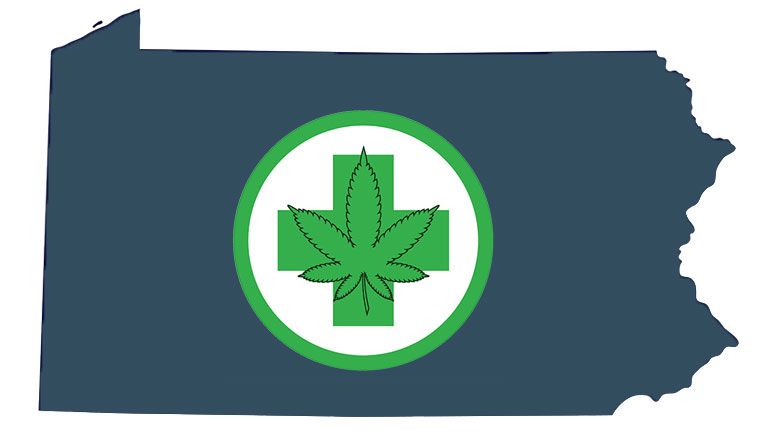Risk of Federal Prosecution Exists, Despite New (Limited) Medical Marijuana Laws
Legalizing marijuana is a process. Decriminalization of marijuana, legalizing medical marijuana, and legalizing recreational marijuana are the hurdles state laws must conquer to reach comprehensive marijuana legalization. Even after a state makes progress, there are federal laws to grapple with. As of 2016, marijuana is still considered a dangerous, illegal drug under federal law, and conflicts between Pennsylvania state law and federal law exist.
Federal Law Makes Marijuana Illegal
The only inclination for a safety net under federal law is official announcements from the Department of Justice offering guidance to federal prosecutors, and some comments from President Obama saying prosecution in states where marijuana is legal is not a top priority for federal agents. Yet, federal agents have prosecuted medical marijuana users, growers and dispensaries in states where marijuana is legal— including people who have used medical marijuana for serious illnesses.
Medical Marijuana Users and Businesses at Risk
It is extremely important for individuals using medical marijuana or starting a medical marijuana business in Pennsylvania to contact an attorney to learn about the risks involved. Labor laws are federal, and we can see from the Coats vs. Dish Network medical marijuana case that the definition of “lawful” and “unlawful” have room for clarification, disagreement and debate. (The case did not end favorably for the quadriplegic Brandon Coats.) Despite existing state medical marijuana laws, Federal agents have prosecuted, without sympathy, a 70-year-old farmer with severe pain, a transplant recipient, and a cancer patient.
Pennsylvania Parents and Children at Risk
When marijuana starts crossing state lines there is an imminent danger of federal prosecution under the Controlled Substance Act since marijuana is listed as a Schedule 1, dangerous drug with no medical use. This is unfortunate because parents in Pennsylvania are allowed under Pennsylvania law to obtain medical marijuana from other states for children with serious illnesses. This is extremely risky. Not only is the issue of marijuana crossing state borders a legal battle, but the Department of Justice has made access of marijuana to minors a priority in their prosecution handbook. Federal prosecutors will arrest first and ask questions later, and the life of a parent dedicated to a seriously ill child could be completely overturned.
Parents and medical marijuana businesses and users should consult an attorney to learn about the risks involved so that they can avoid prosecution from an unempathetic federal agency. Once marijuana is removed as a Schedule 1 drug, the complications with federal and state laws will be greatly reduced.
Pennsylvania’s Medical Marijuana Law Makes (Some) Marijuana Legal
Pennsylvania has made medical marijuana legal under the Medical Marijuana Act, Senate Bill 3. In this law, smoking marijuana and edible marijuana, even for medical reasons, is still prohibited. Marijuana growers, processors and dispensaries must have a permit to operate a medical marijuana business. Doctors and medical professionals must be entered in a registry before certifying a patient for medical marijuana use. Patients and caregivers must be certified and have identification issued by the Pennsylvania Department of Health.
Only the following forms of medical marijuana are allowed:
- Pill
- Oil
- Topical
- Vapor
- Tincture
- Liquid
Only the following medical conditions can be legally treated with medical marijuana:
- Positive status for human immunodeficiency virus or acquired immune deficiency syndrome.
- Amyotrophic lateral sclerosis.
- Parkinson’s disease.
- Multiple sclerosis.
- Damage to the nervous tissue of the spinal cord with objective neurological indication of intractable spasticity.
- Inflammatory bowel disease.
- Huntington’s disease.
- Crohn’s disease.
- Post-traumatic stress disorder.
- Intractable seizures.
- Sickle cell anemia.
- Severe chronic or intractable pain of neuropathic origin or severe chronic or intractable pain in which conventional therapeutic intervention and opiate therapy is contraindicated or ineffective.
The Medical Marijuana Act states that any use of medical marijuana other than what’s covered in the Act is illegal. Questions about the legal use of medical marijuana should be directed to an attorney.
Recreational Marijuana is Still Illegal in Pennsylvania
Pennsylvania Law 233, Number 64, The Controlled Substance Drug, Device and Cosmetic Act is still in effect. This law was passed on April 14, 1972.
The Medical Marijuana Act specifically states the following actions are illegal:
- Smoking marijuana.
- Edible marijuana.
- Growing, processing or dispensing medical marijuana without a permit or authorization under the Act.
- Dispensing medical marijuana in plant or dry leaf form.
- Diversion of medical marijuana to an unauthorized person.
Questions about Legal and Illegal Marijuana Use in Pennsylvania?
The lines between legal marijuana use and illegal marijuana are set forth in Pennsylvania law and federal law, but are constantly challenged. If you are interested in using marijuana legally or have an issue with illegal marijuana, you need to contact an attorney.
Images are provided by Pixabay under Public Domain CC0.







Leave a Reply